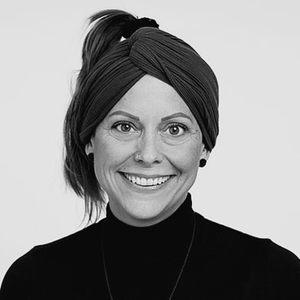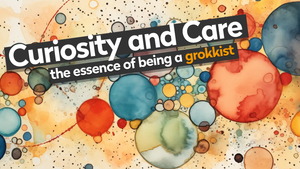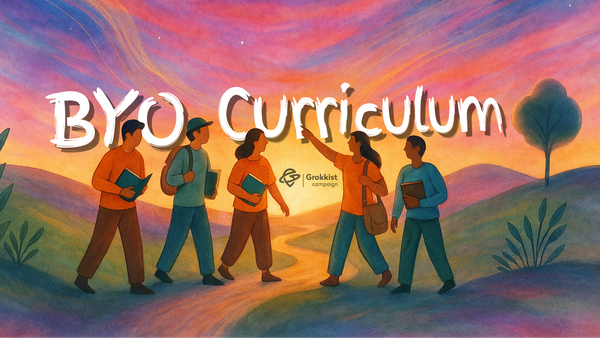There’s a story we tell ourselves about academia. It goes something like this: we are the keepers of knowledge. We advance human understanding. We serve the pursuit of truth. Universities are engines of progress, democracy, enlightenment.
And there’s truth in this story. Some truth.
But there’s also something we don’t talk about much: how thoroughly we’ve domesticated knowledge itself. How we’ve taken something that should be wild — free, urgent, alive in the world — and made it comfortable, contained, credentialed. We’ve built elaborate systems that aren’t about sharing knowledge but about controlling access to it, about maintaining hierarchies, about speaking primarily to each other in languages the public cannot penetrate.
We call this rigor. We call it standards. We call it excellence.
But obviously, we’re mistaking the accumulation of knowledge for the cultivation of wisdom.
What we’re really doing
A few months ago, I attended a conference where a senior scholar gave a keynote about civic engagement. She spoke eloquently about the responsibility of universities to serve democracy, to help citizens navigate complex policy questions, to bridge divides, and bout the need for transdisciplinary research. The audience — mostly academics — nodded along. We felt good about ourselves.
During the Q&A, a graduate student asked something along the lines of: “How do we actually do this? How do we write in ways normal people can read? How do we leave campus and go to where people are?”
The room went quiet in that particular way rooms go quiet when someone has said something true and uncomfortable. The keynote speaker smiled and said something about “translational work” being important, but also about the need to maintain scholarly rigor, and anyway, others, like storytellers, should definitely work on that.
I sat there thinking: we’re not even asking the right question.
It’s not primarily about translating our knowledge to the public. It’s about recognizing that in order to help people, to help ourselves really, resolve the problems we face — how to live life in the face conflict, injustice, climate change, war or species extinction — what we need isn’t primarily more knowledge. What we need is be able to be able to think, be and act in new, appropriate ways. We need a rich store of vividly imagined, carefully criticized possible courses of action. We need inquiry that helps us figure out what to do, how to live together in these times. Not just what to know.
What we need is be able to be able to think, be and act in new, appropriate ways.
But we’ve built an entire system around the idea that the fundamental task of inquiry is to produce knowledge. Papers. Books. Theories. Data. And we tell ourselves that if we just produce enough knowledge, somehow, eventually, people will figure out how to act on it.
They won’t. They haven’t. And we keep producing more knowledge.
What academia was supposed to be
It’s worth remembering that the university, in various forms, was originally conceived as exactly what the title of this essay suggests: a kind of people’s civil service. Not in the sense of state bureaucracy, but in the sense of a collective resource dedicated to helping communities live better, understand themselves, solve problems.
Medieval guilds, ancient philosophical schools, public lectures of the Enlightenment — these were meant to be spaces where knowledge lived and breathed in the world. But more than that: they were places where people came to figure out how to live. Not just to acquire information, but to cultivate practical wisdom about how to act, how to choose, how to be.
Somewhere along the way, we made a choice. Or likely it was less of a choice and more a matter of setting the wrong incentives. We decided that the basic intellectual aim of academic inquiry should be to improve knowledge. Just knowledge. Not wisdom about how to live, not the capacity to act intelligently and humanely, not the ability to imagine and evaluate possible ways of being in the world — just knowledge.
And we did this while still calling ourselves servants of the public good. While still accepting public funding. While still claiming our work matters.
The problem isn’t a paradigm shift
I want to be clear about what I’m saying here, because it’s easy to misunderstand.
I’m not arguing for a new theory. I’m not suggesting we need a different paradigm within our current framework. I’m not saying we should study different things or use different methods within the existing structure of academic inquiry.
What I’m suggesting is more radical: we need to transform the fundamental aims and methods of inquiry itself.
Right now, we have a kind of inquiry that has, as its basic intellectual aim, to improve knowledge. What we need, urgently, is a kind of inquiry that has, as its basic intellectual aim, to improve wisdom. To help people act more intelligently, more humanely, more wisely in addressing the problems of living together.
What we need, urgently, is a kind of inquiry that has, as its basic intellectual aim, to improve wisdom.
This isn’t a change in what we know about the world. It’s a change in what we’re trying to do with inquiry.
This new kind of inquiry would actually be more intellectually rigorous, not less. Because wisdom is harder than knowledge. Acting well is harder than knowing accurately. Helping people figure out what to do in the mess and uncertainty of real life requires more sophistication, more rigor, more discipline than producing another paper about abstract theories.
The domestication of knowledge
Last week I talked about how we’ve domesticated spirituality, made it comfortable, soothing, non-transformative. I think we’ve done the same thing to knowledge.
We’ve taken inquiry — which should be dangerous, disruptive, world-changing — and made it safe. Safe for our careers. Safe for our institutions. Safe from scrutiny, from challenge, from the messy demands of actual human problems.
Real inquiry, the kind that serves people, is uncomfortable. It means your work isn’t just about what’s true in the abstract, but about what people should do in the particular. It means engaging with the personal, the lived, the urgent. It means risking being wrong in ways that matter to people whose lives are actually affected.
We’ve protected ourselves from all of this. We’ve created a system where we can spend entire careers without ever having to face someone who needs what we know, who’s asking us to help, who’s waiting for an answer that might make a difference in their actual life.
We produce knowledge. We don’t cultivate wisdom.
What we’re not looking at
Here’s what I think we’re avoiding: the recognition that inquiry, if it’s genuinely to serve people, must be fundamentally personal and interpersonal in character.
This sounds simple, but I hardly see it.
It means inquiry isn’t just something that happens in journals and conferences and laboratories, separate from life. It’s part of life. It’s part of our own seeking after what is of value — to us personally, to our communities, to our shared existence. It means the questions we pursue aren’t just intellectually interesting but emerge from and return to the actual struggles of actual people trying to figure out how to live.
It means the questions we pursue aren’t just intellectually interesting but emerge from and return to the actual struggles of actual people trying to figure out how to live.
But admitting this requires us to give up something comfortable: the fiction that we can pursue inquiry in some objective, detached, impersonal way that’s separate from our own lives and values and struggles.
At the same time, and this is crucial, inquiry can’t be only personal. It must also have a social, institutional, traditional character. Even an impersonal aspect. Because if it’s going to help us get in touch with what’s of value — in the world, in each other, in ourselves — it needs the rigor that comes from collective scrutiny, from methods that can be shared and tested, from institutions that preserve and transmit what we learn.
This is the tension we haven’t figured out how to hold: inquiry must be both deeply personal and rigorously social. Both rooted in life and structured by institutions. Both about helping individual people act wisely and about creating collective resources that endure.
We’ve solved this tension by choosing one side: the impersonal, the institutional, the traditional. We’ve built academia as if inquiry can and should be separate from the personal quest for wisdom. As if knowledge can be pursued without confronting the question of how we should live.
And in doing so, we’ve made ourselves useless to the very people we claim to serve.
The responsibility we’re not taking
I found that the lifestyle experiments I am doing often teach me the most about transformation research. My strong desire to constantly change myself is what gives my research, as a transformation researcher, substance.
It teaches me what wisdom looks like in practice. Not abstract knowledge, but the capacity to imagine and evaluate possibilities for action in specific situations. And while it’s easy to disregard these attempts, I also find that they are more rigorous than writing academic papers, not less. It requires everything I learn as a scholar — the ability to analyze, to see patterns, to draw on examples, to think critically — but it also requires me to bring all of that into contact with the messy particularity of my real life.
It requires me to be both personally invested and intellectually disciplined.
It requires inquiry that was simultaneously personal and impersonal, rooted in life and structured by rigorous thinking.
What that might actually look like
So what would it mean to transform academia into genuine inquiry aimed at improving wisdom rather than just knowledge?
It would mean creating spaces where communities could bring their real problems and work with scholars to imagine and critically evaluate possible responses. Not applied research where we take our theories and apply them downward, but collaborative inquiry where the questions emerge from life and the answers return to life. This is already happening in transdisciplinary research, especially in sustainability.
Here are just a few examples of the many amazing groups and people working on such a new vision in academia:
It would also mean though that universities become places where people come, not primarily to learn what we know, but to think together about how to act. Where a community facing displacement, a neighborhood navigating conflict, a city trying to become more sustainable could find people with whom they can imagine possibilities, examine assumptions, learn from other contexts, think more rigorously about their options.
In “Education in a Time Between Worlds”, Zach Stein writes
"Paideia is a Greek word with wide-ranging connotations. It is broadly about the raising of younger members of society in the context of a polity, or political community. The creation of a collective paideia was believed to transcend and include the creation of a polity. A well-functioning paideia is a community drawn together by commitment to an explicit philosophy of the good life and a related praxis of education. A paideia is a community that is focused on the creation of a certain kind of virtuous human, a community in which economics and politics are subordinate to an explicitly educational vision. This is a society in which life itself is understood as a process of deliberate cultural and ethical aspiration across generations.”
This would mean academics’ work was evaluated not by how many papers they publish, but by how well they help people act more wisely. By whether the communities they work with are actually able to address their problems more effectively. By whether the inquiry they pursue makes any difference to anyone’s actual life.
It would mean different methods. Not just data collection and analysis, but the systematic creation and criticism of possible actions. The cultivation of moral imagination. The development of practical wisdom. The rigorous examination of what people should do, not just what is the case.
And, like I mentioned, this would require both the personal and the institutional. We’d need academics who are willing to engage personally, who see their work as part of their own quest to live wisely, who don’t hide behind expertise, but offer their thinking as a genuine contribution to collective deliberation. But we’d also need institutions that support and structure this work, that preserve and share what’s learned, that maintain standards of rigor, that make wisdom-inquiry a sustainable vocation.
We need both. We have neither.
So where does this leave us?
I think it leaves me, leaves us, with questions I’m not sure how to answer:
- How do I transform my work from producing knowledge to cultivating wisdom, both in myself and in the communities I might serve?
- What would it mean to see inquiry not as something separate from my life, but as an expression of my own seeking after what’s valuable?
- How do I hold the tension between the deeply personal character of wisdom-ing and the need for institutional structures that make it rigorous and sustainable?
- What would it look like to spend my time not writing papers that produce knowledge, but engaging in collaborative inquiry that helps people figure out how to act?
- What needs to change — in me, in my department, in the university, in the entire structure of academic inquiry — for this transformation to be possible?
I don’t have clear answers. I’m writing this from inside the system, still complicit, still benefiting from the very structures I’m questioning. I still “teach” classes. I still want publications. I still want the security that comes from playing by academia’s rules, rules that demand knowledge, not wisdom.
Yet, I can still strive to become, instead, what I think academics always should have been: people engaged in the rigorous, personal, collaborative work of helping each other act more wisely in a world that desperately needs wisdom.
Jessica explores the art of practical philosophy, helping others develop their own philosophy to navigate the challenges of the Anthropocene. Her work is a blend of interdisciplinary insights—from ecology and sustainability to spirituality and psychology—crafted into wisdom you can apply to daily life.
For more thought-provoking reflections on living a good life in a complex, changing world, visit Wild:Philosophy to discover how to live in right relation, embrace paradoxes, and thrive in the gooey soup of meaning-making.











Member discussion